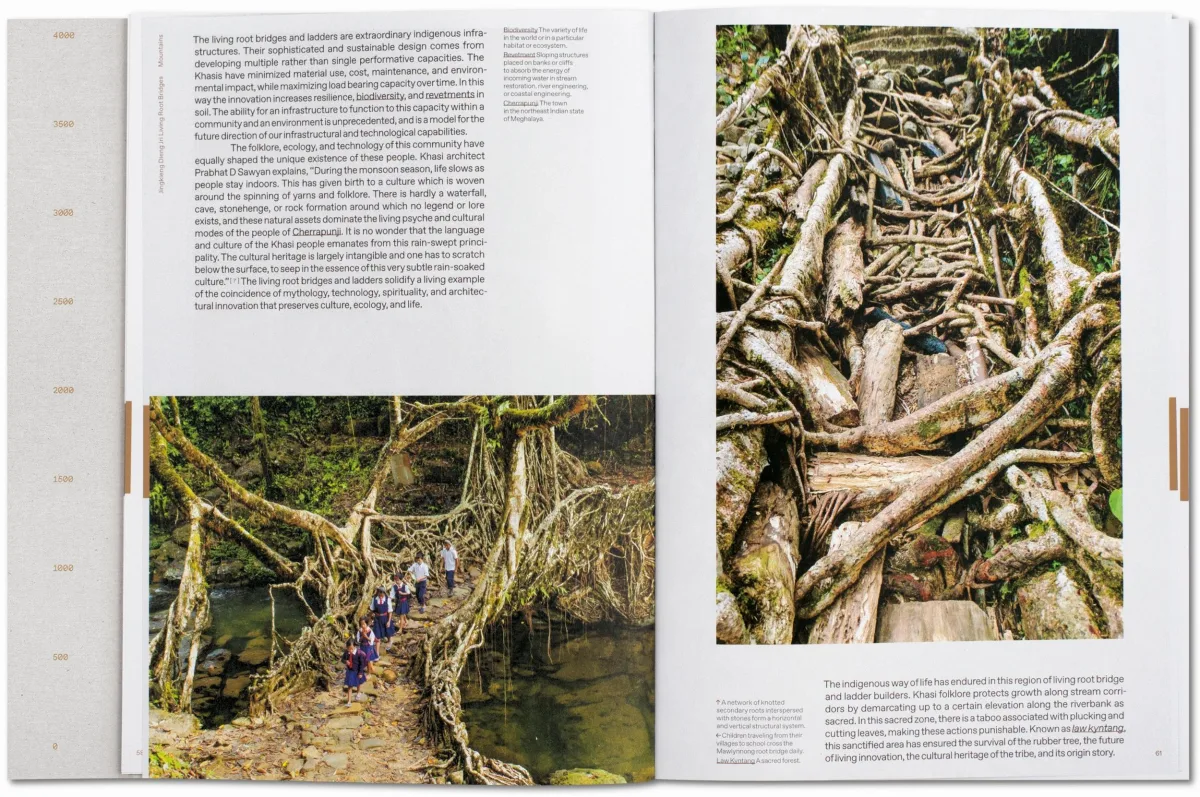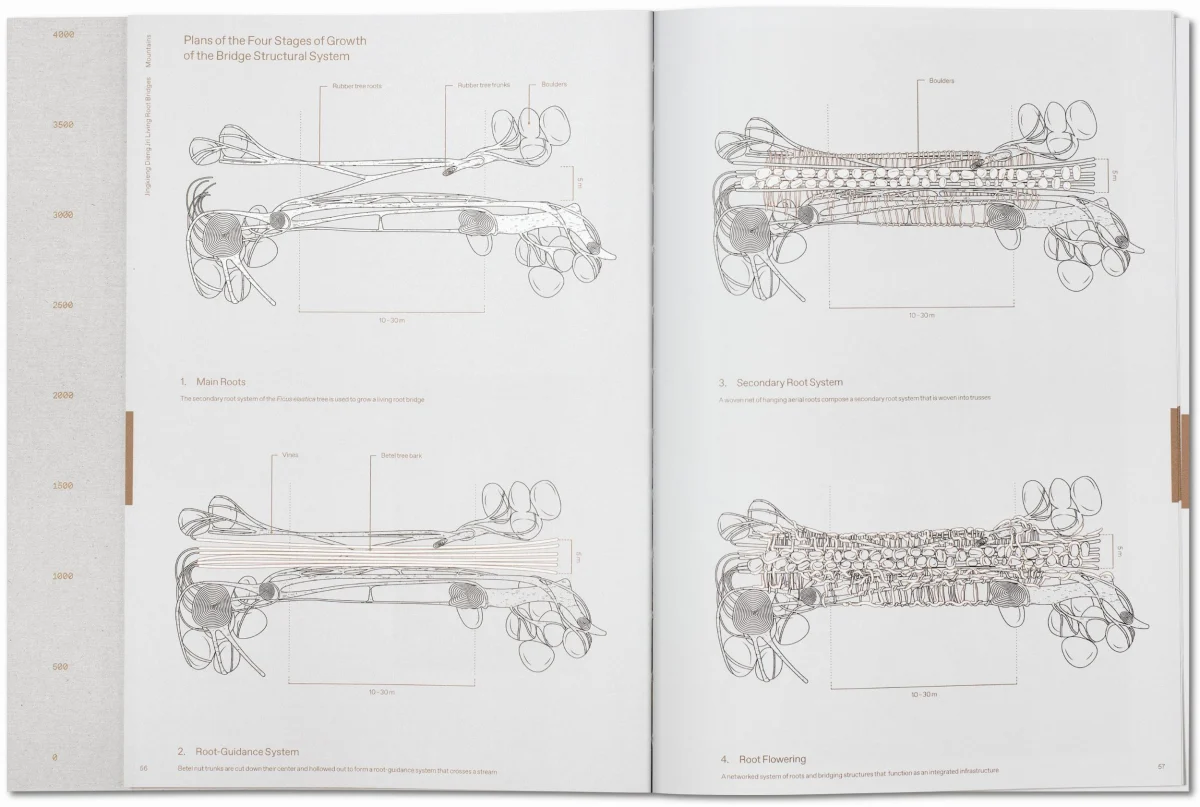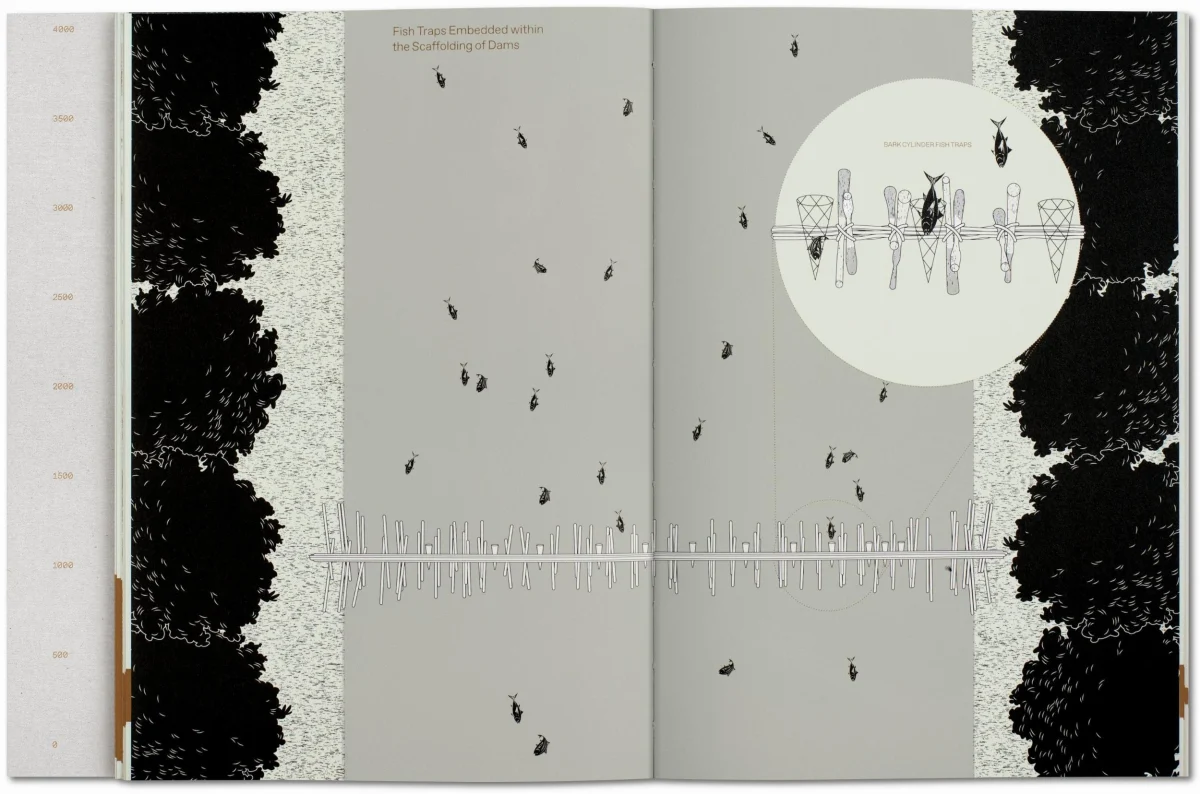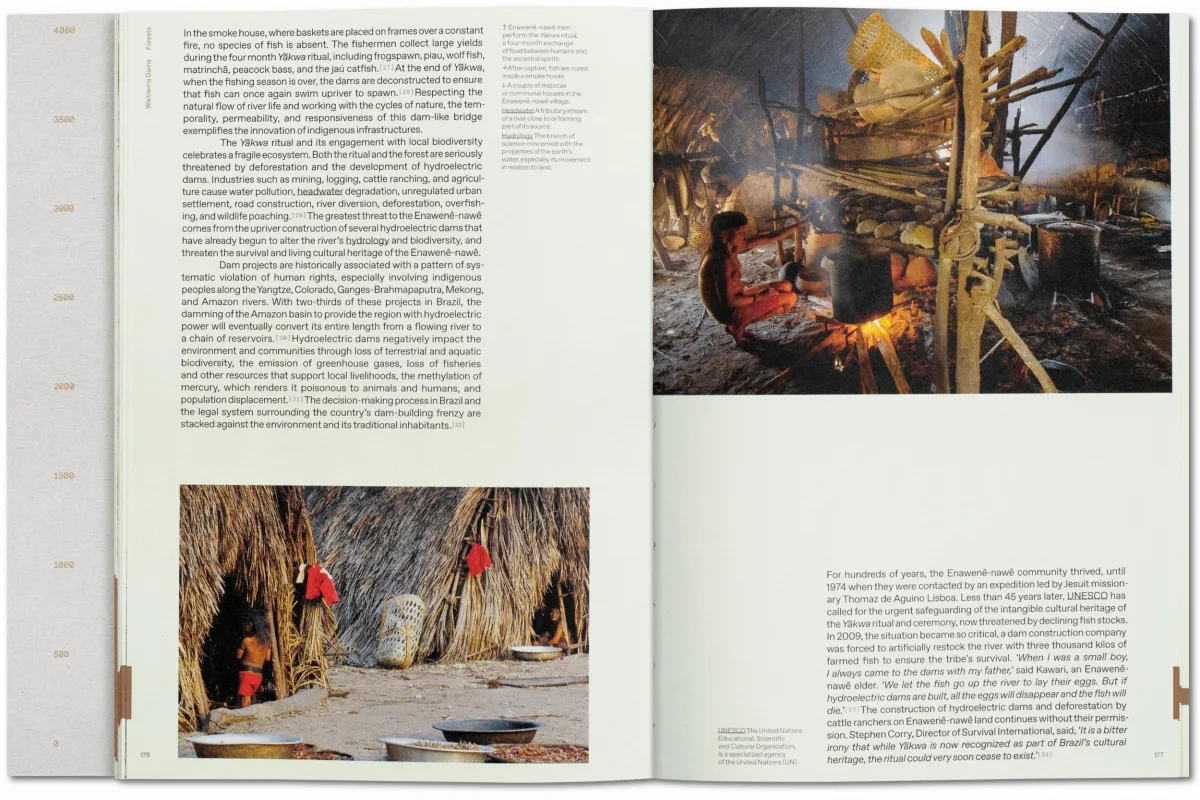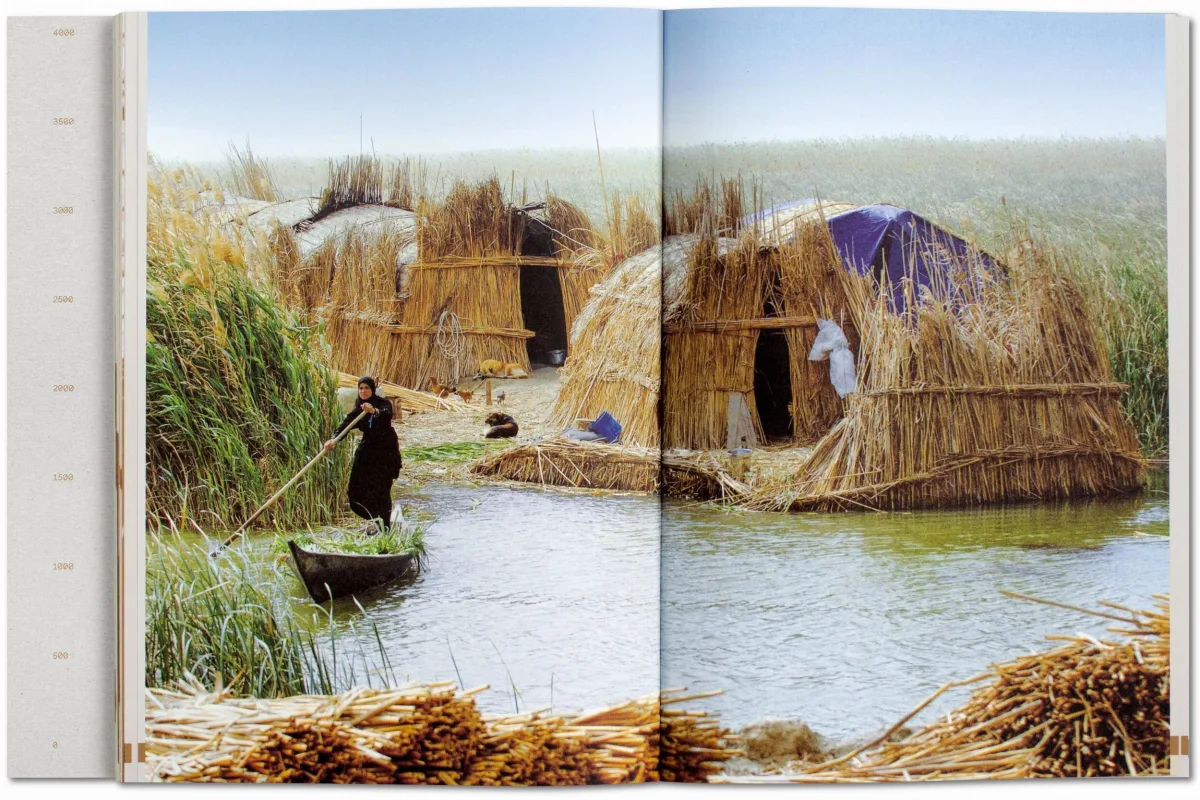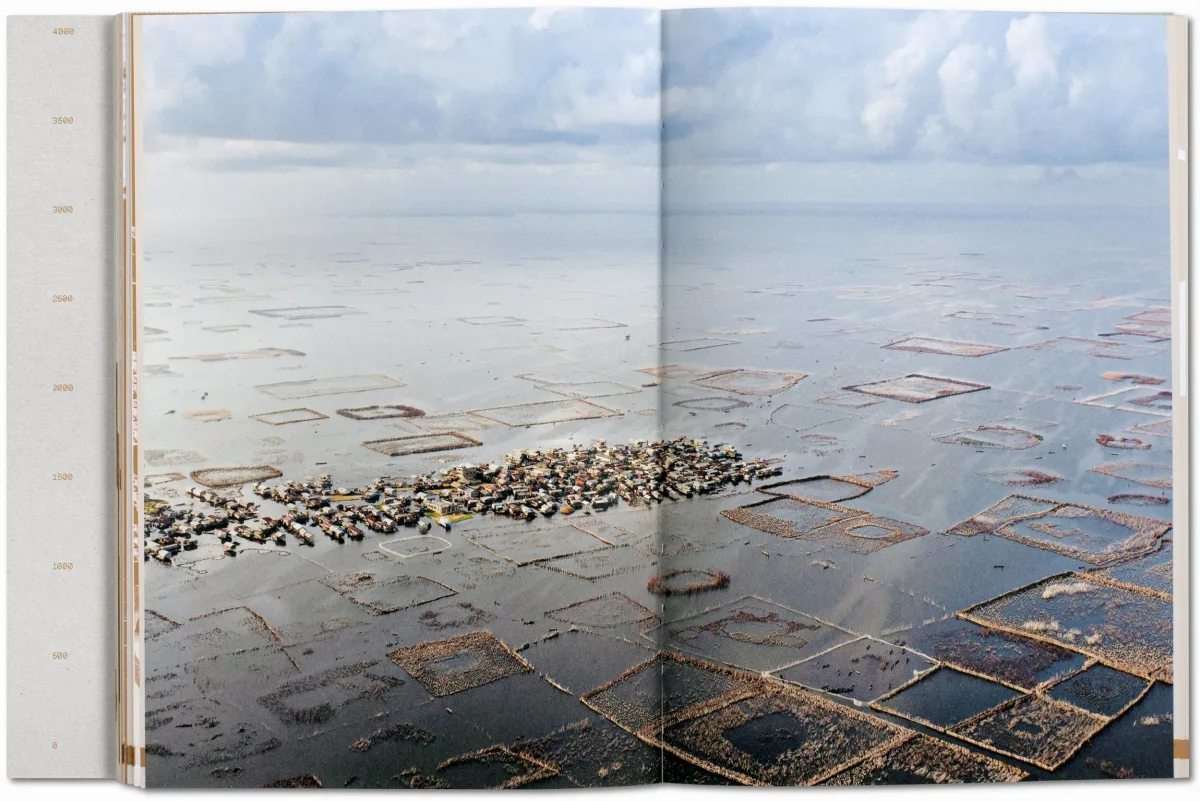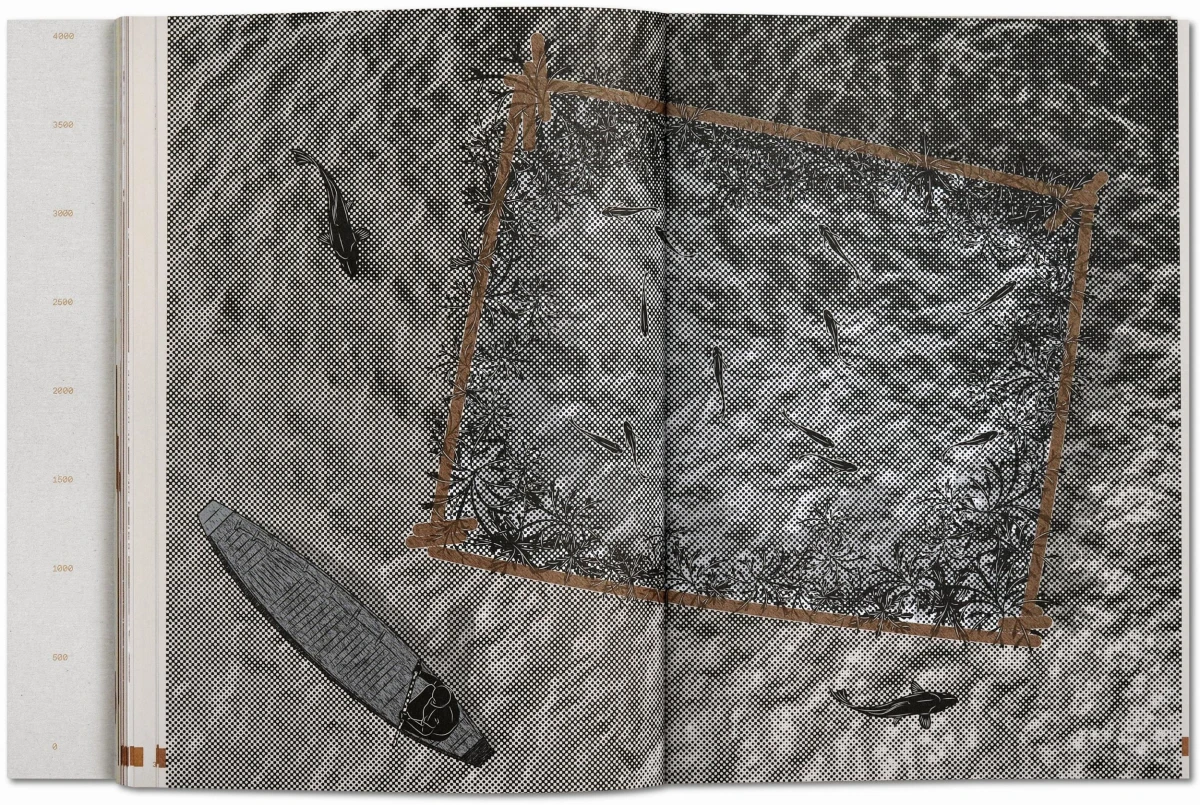Julia Watson. Lo—TEK. Design by Radical Indigenism
“Lo—TEK—a design movement to rebuild an understanding of indigenous philosophy and vernacular design that generates sustainable, climate-resilient technologies.”
“Examples of centuries-old design that combat climate change.”

Julia Watson. Lo—TEK. Design by Radical Indigenism
60Designers understand the urgency of reducing humanity’s negative environmental impact, yet perpetuate the same mythology of technology that relies on exploiting nature. Responding to climate change by building hard infrastructures and favoring high-tech homogenous design, we are ignoring millennia-old knowledge of how to live in symbiosis with nature. Without implementing soft systems that use biodiversity as a building block, designs remain inherently unsustainable.
Lo—TEK, derived from Traditional Ecological Knowledge, is a cumulative body of multigenerational knowledge, practices, and beliefs, countering the idea that indigenous innovation is primitive and exists isolated from technology. It is sophisticated and designed to sustainably work with complex ecosystems.
With a foreword by anthropologist Wade Davis and four chapters spanning Mountains, Forests, Deserts, and Wetlands, Julia Watson explores thousands of years of human wisdom and ingenuity from 18 countries including Peru, the Philippines, Tanzania, Kenya, Iran, Iraq, India, and Indonesia. We rediscover an ancient mythology in a contemporary context, radicalizing the spirit of human nature.
The tactile reading experience of Lo—TEK reflects the ingenuity of carefully selected projects with sophisticated design details: copper highlights the value of ancient knowledge, a cardboard hardcover echoes rawness, and the Swiss binding showcases an open spine and reveals the construction of the book, just as the book discloses hidden technological knowledge.
The designer
W—E studio is the multidisciplinary graphic design studio of Piera Wolf and Claudine Eriksson. Being based between Zürich and New York means bridging time and space is second nature to the practice. The studio is dedicated to creating meaningful and striking visual languages for clients within the arts, hospitality, fashion, music and other commercial sectors.
The illustrator
Berke Yazıcıoğlu studied in Chicago before settling in London. Moving fluidly between digital drawing, painting, illustration, and design, he explores the tension between longing and order, reflecting on wider social and cultural currents. His visual narratives have featured in The New Yorker, Wired, Die Zeit, and Dezeen.
The editor and author
Julia Watson is an Australian-born designer, educator, author, TED speaker, and radical thought leader of Greco-Egyptian-English heritage, known for championing climate-resilient design through ancestral technologies. Trained as an architect in First Nations knowledge systems, she spearheads the global Lo—TEK movement. She co-founded the Lo—TEK Institute and the Lo—TEK Office for Intercultural Urbanism, both co-led by Indigenous and non-Indigenous designers and scientists. A lecturer at Harvard and Columbia, Watson has collaborated with NIKE, LEGO, Gensler, and Buro Happold, continually redefining sustainability through ancestral wisdom.
Julia Watson. Lo—TEK. Design by Radical Indigenism
Hardcover, Swiss binding with open spine, 17 x 24.4 cm, 1.07 kg, 420 pagesISBN 978-3-8365-7818-9
Edition: English5


